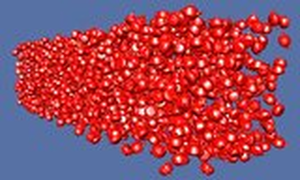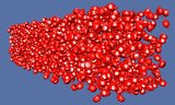Information
- Publication Type: Journal Paper with Conference Talk
- Workgroup(s)/Project(s):
- Date: September 2004
- Journal: Computer Graphics Forum
- Volume: 23
- Number: 3
- Note: Proceedings EUROGRAPHICS 2004
- Location: Grenoble, France
- Lecturer: Michael Wimmer
- ISSN: 0167-7055
- Event: EUROGRAPHICS 2004
- Conference date: 30. August 2004 – 3. September 2004
- Pages: 615 – 624
- Keywords: occlusion query, visibility, real-time rendering, occlusion culling
Abstract
We present a simple but powerful algorithm for optimizing the usage of hardware occlusion queries in arbitrary complex scenes. Our method minimizes the number of issued queries and reduces the delays due to the latency of query results. We reuse the results of the occlusion queries from the last frame in order to initiate and schedule the queries in the next frame. This is done by processing nodes of a spatial hierarchy in front-to-back order, interleaving occlusion queries with the rendering of certain previously visible nodes. The proposed scheduling of the queries makes use of spatial and temporal coherence of visibility. Despite its simplicity, the algorithm achieves good culling efficiency for scenes of various characteristics. The implementation of the algorithm is straightforward, and it can be easily integrated in existing real-time rendering packages using various spatial data structures.Additional Files and Images
Weblinks
No further information available.BibTeX
@article{Bittner-2004-CHC,
title = "Coherent Hierarchical Culling: Hardware Occlusion Queries
Made Useful",
author = "Jir\'{i} Bittner and Michael Wimmer and Harald Piringer and
Werner Purgathofer",
year = "2004",
abstract = "We present a simple but powerful algorithm for optimizing
the usage of hardware occlusion queries in arbitrary complex
scenes. Our method minimizes the number of issued queries
and reduces the delays due to the latency of query results.
We reuse the results of the occlusion queries from the last
frame in order to initiate and schedule the queries in the
next frame. This is done by processing nodes of a spatial
hierarchy in front-to-back order, interleaving occlusion
queries with the rendering of certain previously visible
nodes. The proposed scheduling of the queries makes use of
spatial and temporal coherence of visibility. Despite its
simplicity, the algorithm achieves good culling efficiency
for scenes of various characteristics. The implementation of
the algorithm is straightforward, and it can be easily
integrated in existing real-time rendering packages using
various spatial data structures.",
month = sep,
journal = "Computer Graphics Forum",
volume = "23",
number = "3",
note = "Proceedings EUROGRAPHICS 2004",
issn = "0167-7055",
pages = "615--624",
keywords = "occlusion query, visibility, real-time rendering, occlusion
culling",
URL = "https://www.cg.tuwien.ac.at/research/publications/2004/Bittner-2004-CHC/",
}


 Paper
Paper
